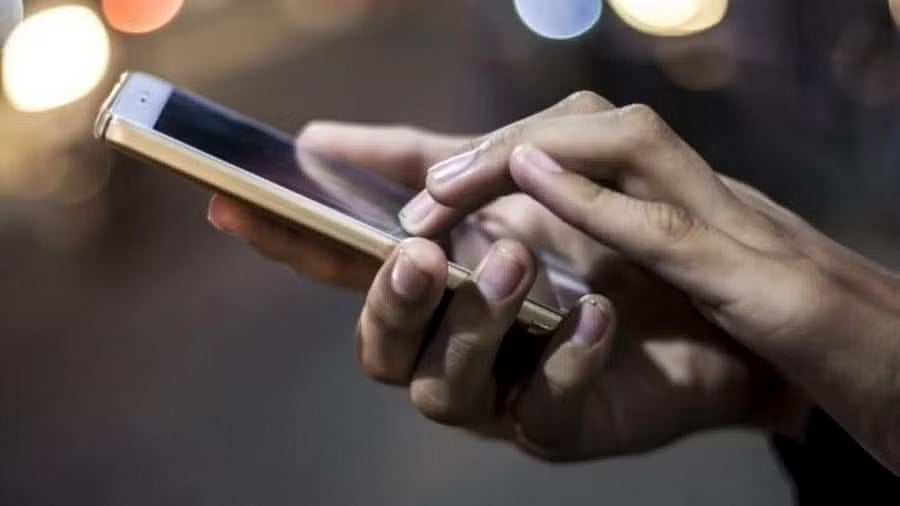
Representative image of smartphone.
Credit: iStock Photo
Lucky is the man who does not have skeletons in his closet, so goes the saying. But in this digital era, the closet or cupboard has been replaced by our smartphones and laptops. These gadgets now hold so many vital and crucial records of our lives that if they land in the wrong hands, our future could be in jeopardy.
In the last decade or two, mobile phone usage has become so pervasive that it has scaled all class, gender and age barriers. Our lives have become so dependent on our phones that they have now become an extension of ourselves.
With each upgrade and new feature, these devices have progressively entwined themselves with our private and official lives.
In the early 2000s, we had the feature phones that could carry our contact lists, call logs, text messages, and maybe a few games. They could not access the internet or download apps, photos or videos.
Those were the early days, and mobile phones were prized possessions, with even incoming calls and messages getting charged. People saw this as a new mode of communication that helped them stay in touch while on the move but used it very sparingly and followed some cheat codes to beat high call rates.
The traditional landline phones continued to hold sway, as they were cheaper; the only threat mobile phones posed then was to wristwatches and clocks.
Once the charges for incoming calls and messages were abolished, mobile phone sales and usage grew by leaps and bounds. Many one-handset households turned into multi-handset ones, and soon families began pondering whether a landline was needed at all.
Along came camera phones. Many wondered why a camera was needed on a phone, which is meant to communicate. But all naysayers were proved wrong, and what these camera phones spawned was something no one had foreseen – selfie culture.
Now no age group, social strata or ethnicity is free from this narcissistic affliction; hardly any occasion or place is considered not kosher for a selfie. Now we have reached such a stage where prominent handset brands are offering ‘selfie cameras’ as their unique selling proposition!
However, the game changer was the smartphone. They offered a seamless link to the internet, and the facility to download apps completely changed our personal and work lives.
It changed the way we socialise, handle finances, shop, travel, and access news and entertainment. Smartphones are the first thing we look at after waking up and the last thing before crashing at night. They have now become a rich repository of your personal photos and videos, your health data, banking and digital payments apps, and authenticator gateways to access protected networks of your office.
Losing a smartphone is a calamity, irrespective of the passcodes and other safety nets. Even moving data from an old smartphone to a new one is as challenging as moving houses!